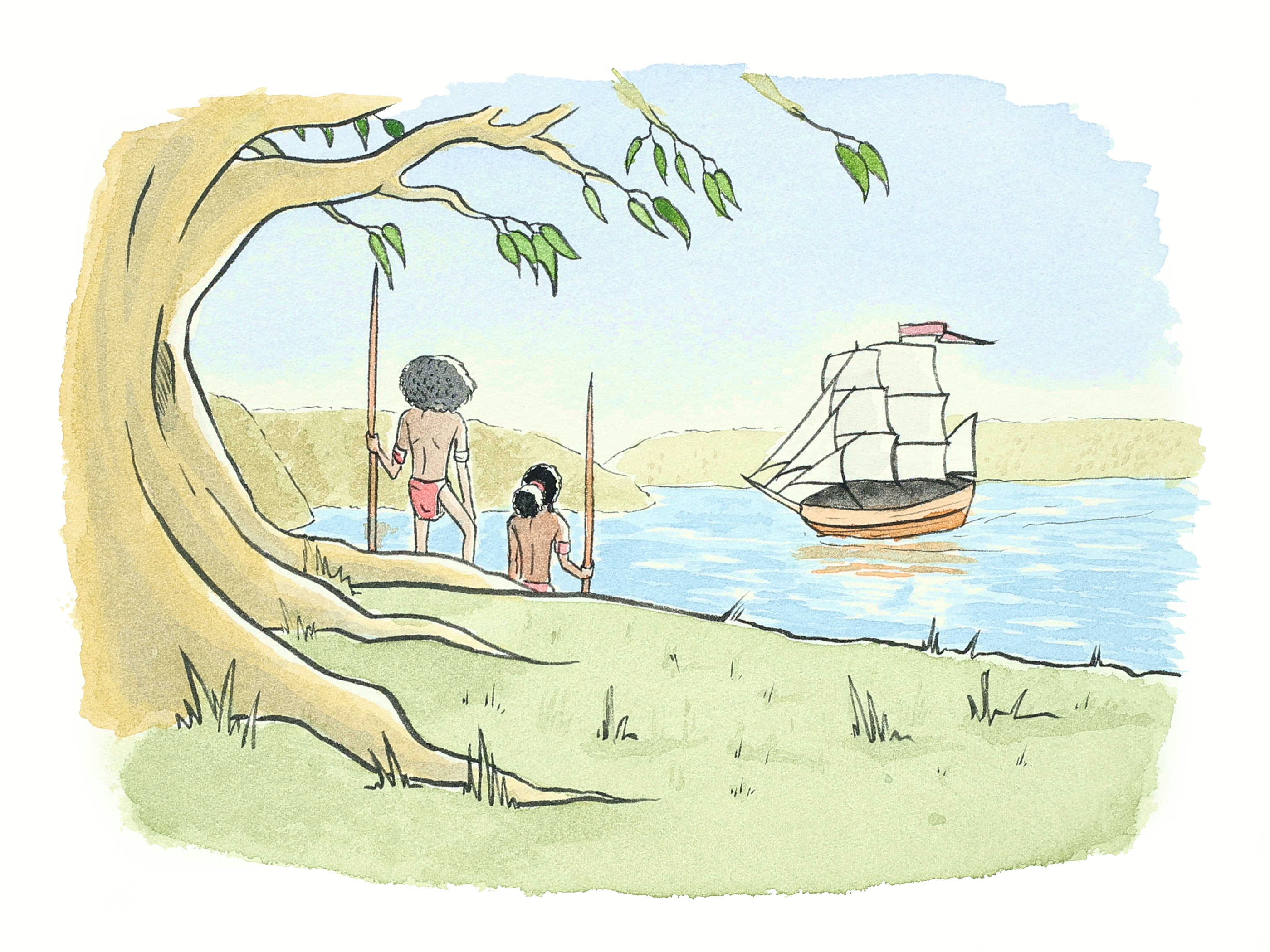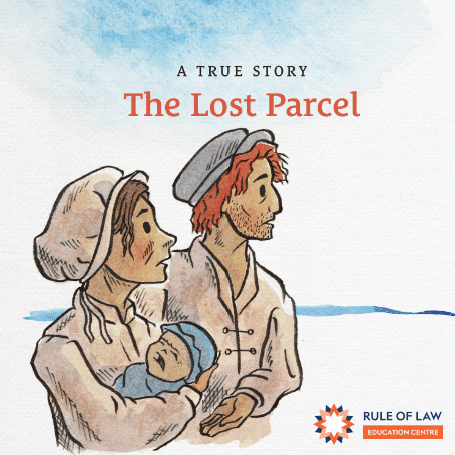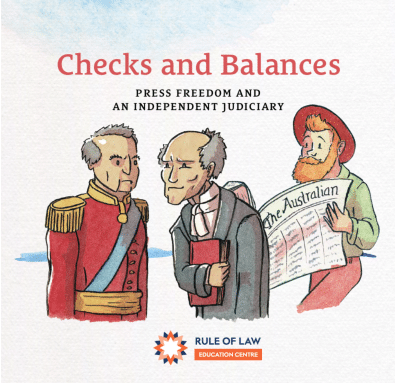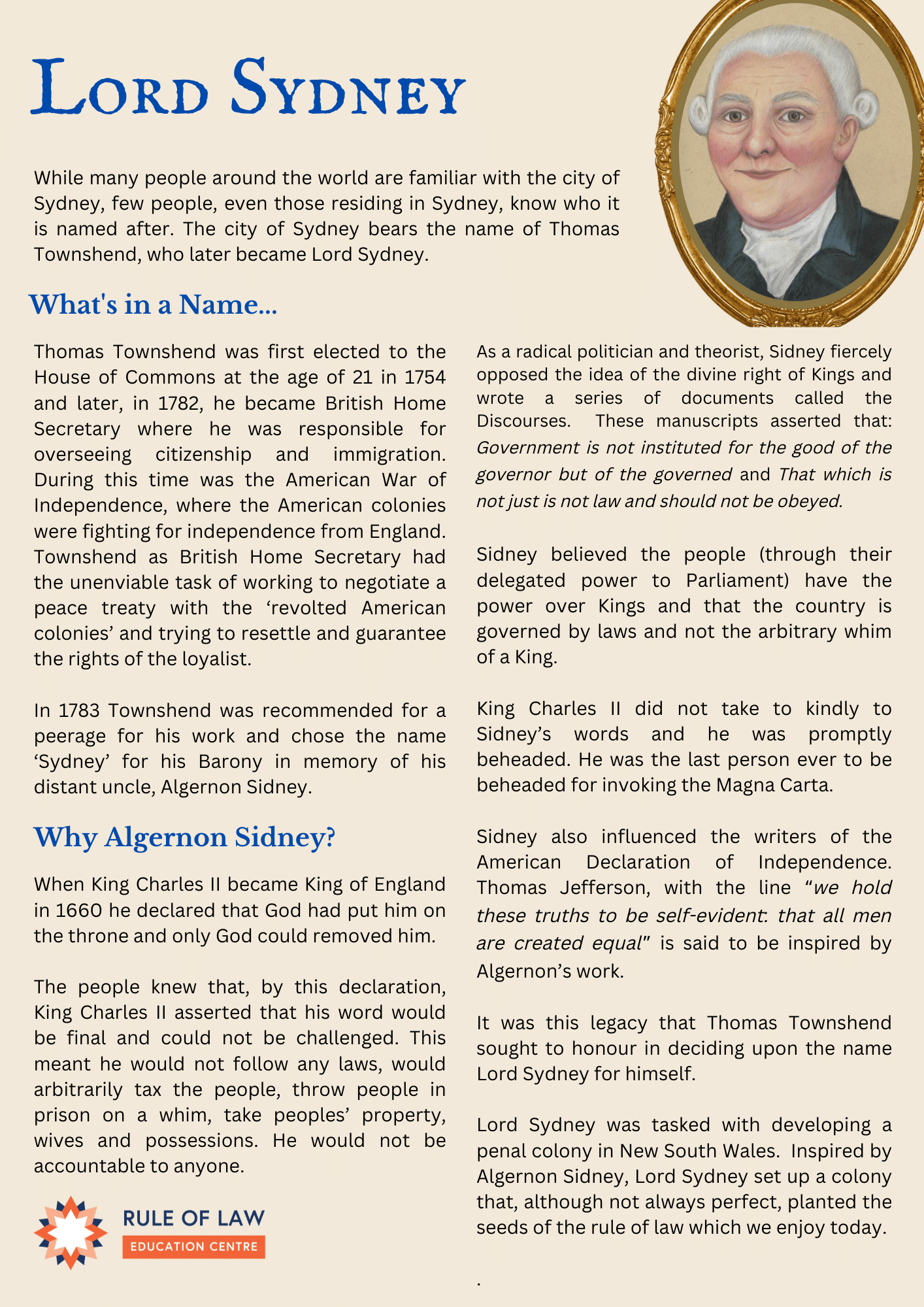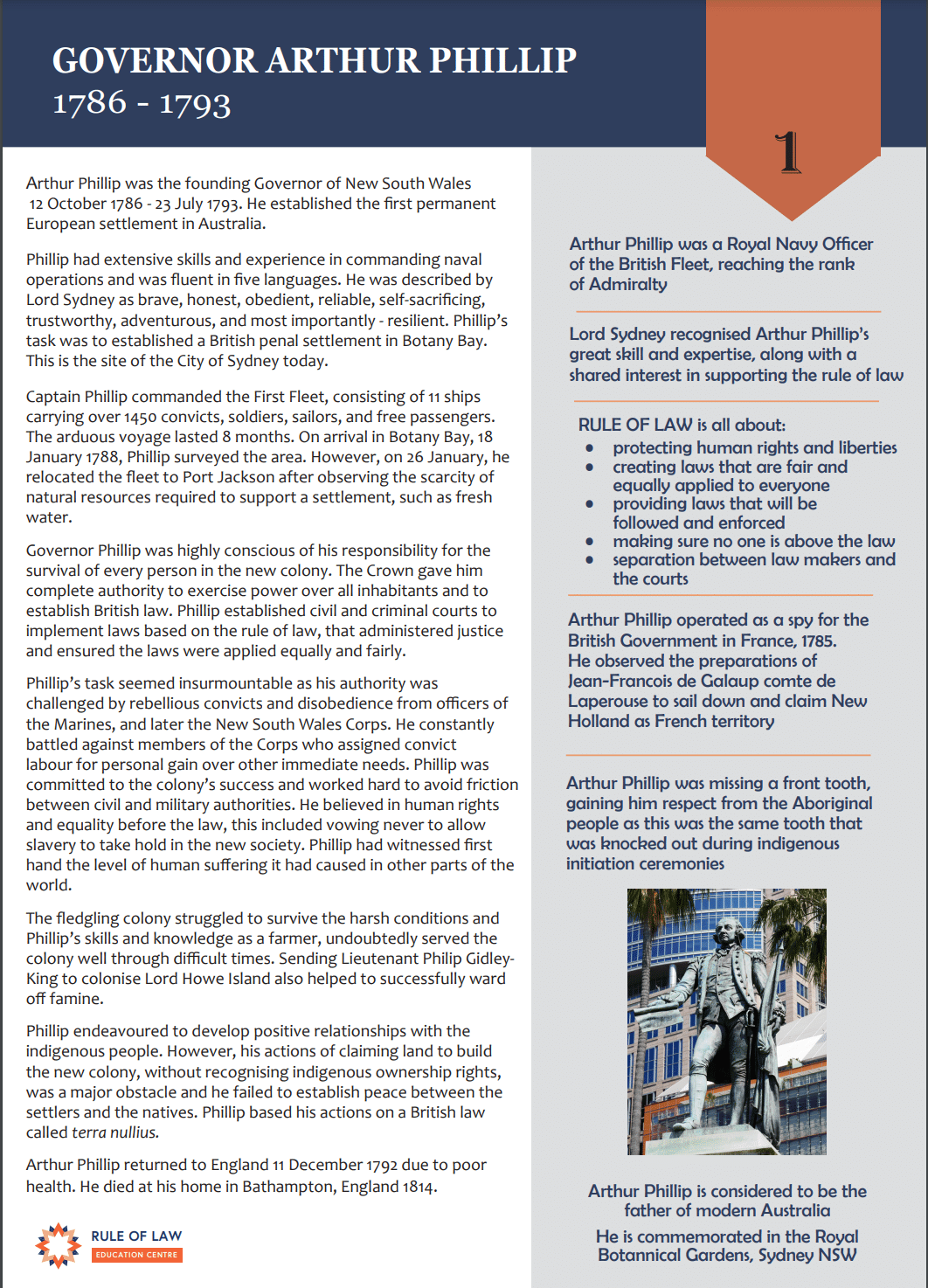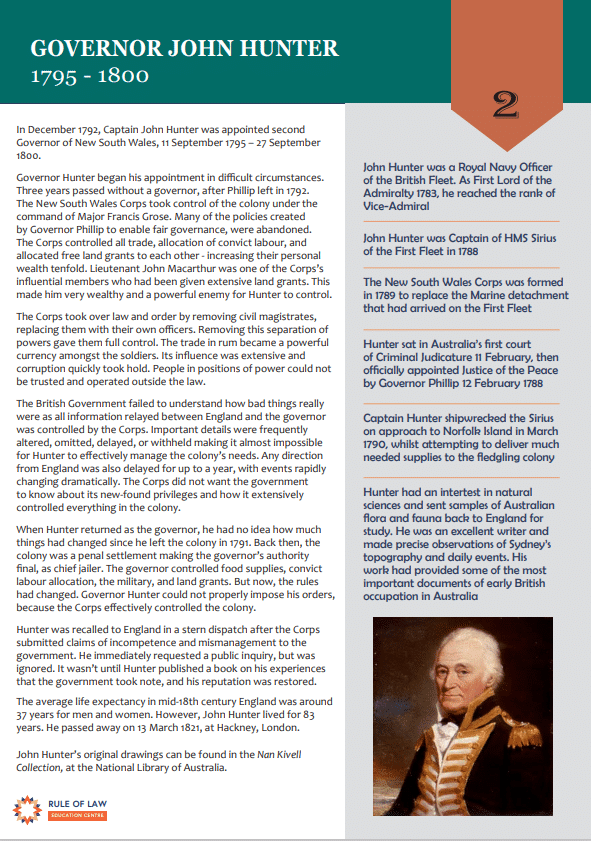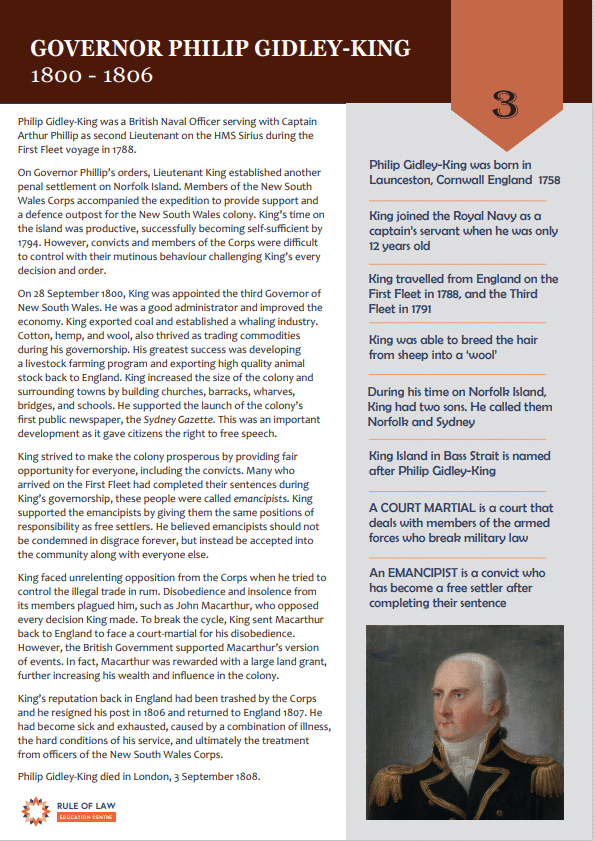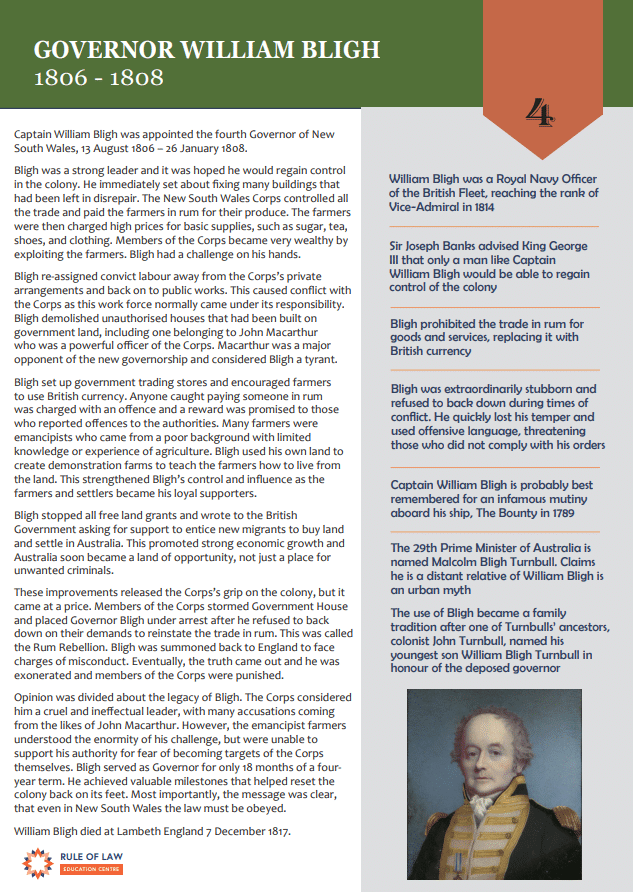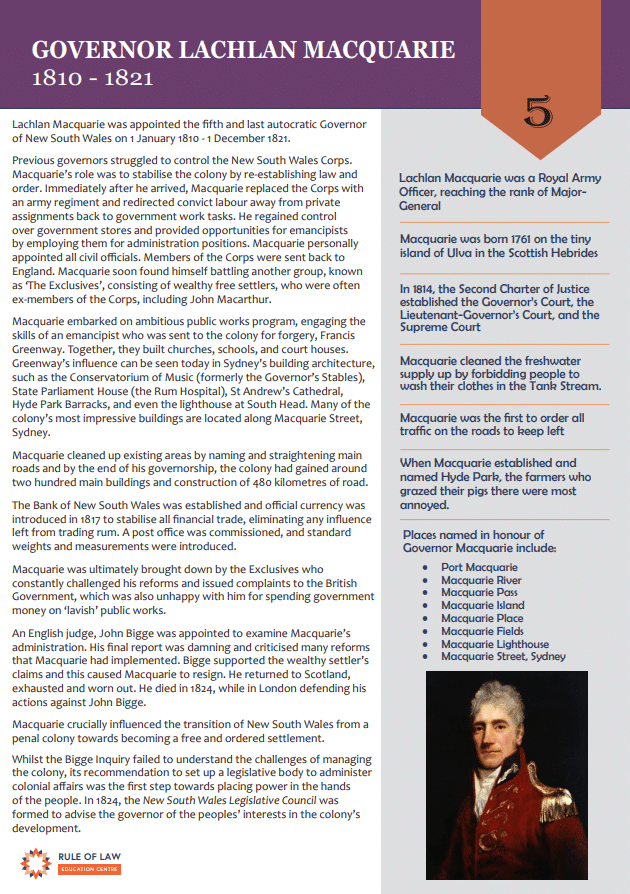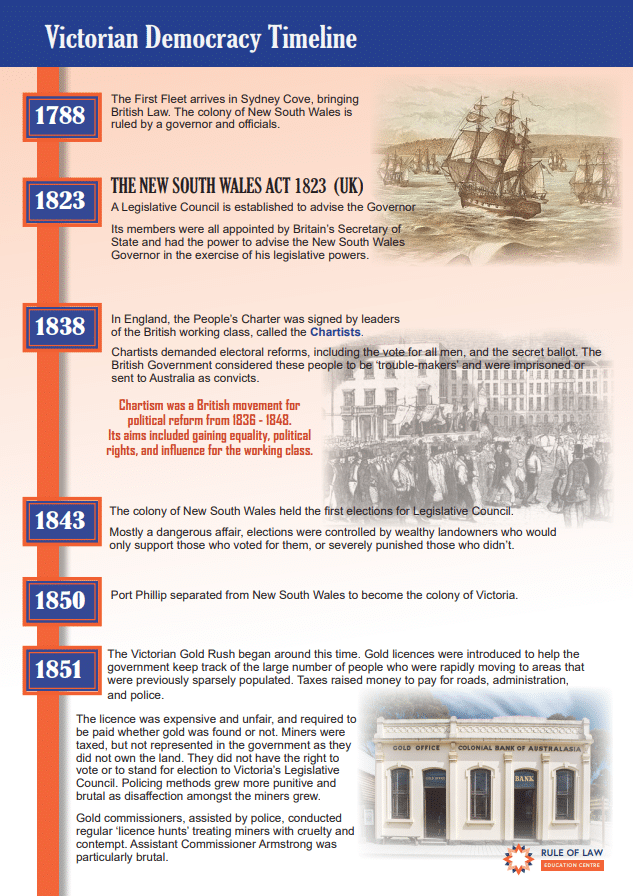Australian History
and Civics
Understanding the history behind our government and laws empowers Australians to actively shape a fair and accountable democracy for all.
The democratic aspiration is no mere recent phase in human history. It is human history. It permeated the ancient life of early peoples. It blazed anew in the Middle Ages. It was written in Magna Carta – Franklin D. Roosevelt
Why study Australia’s history?
Understanding the history and development of our government systems is important for every Australian. These systems didn’t just appear; they have grown over more than 200 years in Australia and over 800 years from England, starting with the Magna Carta.
By learning how our democracy and rule of law were built and why they work the way they do, students can learn from the past. This helps them take part in making our future better for everyone.
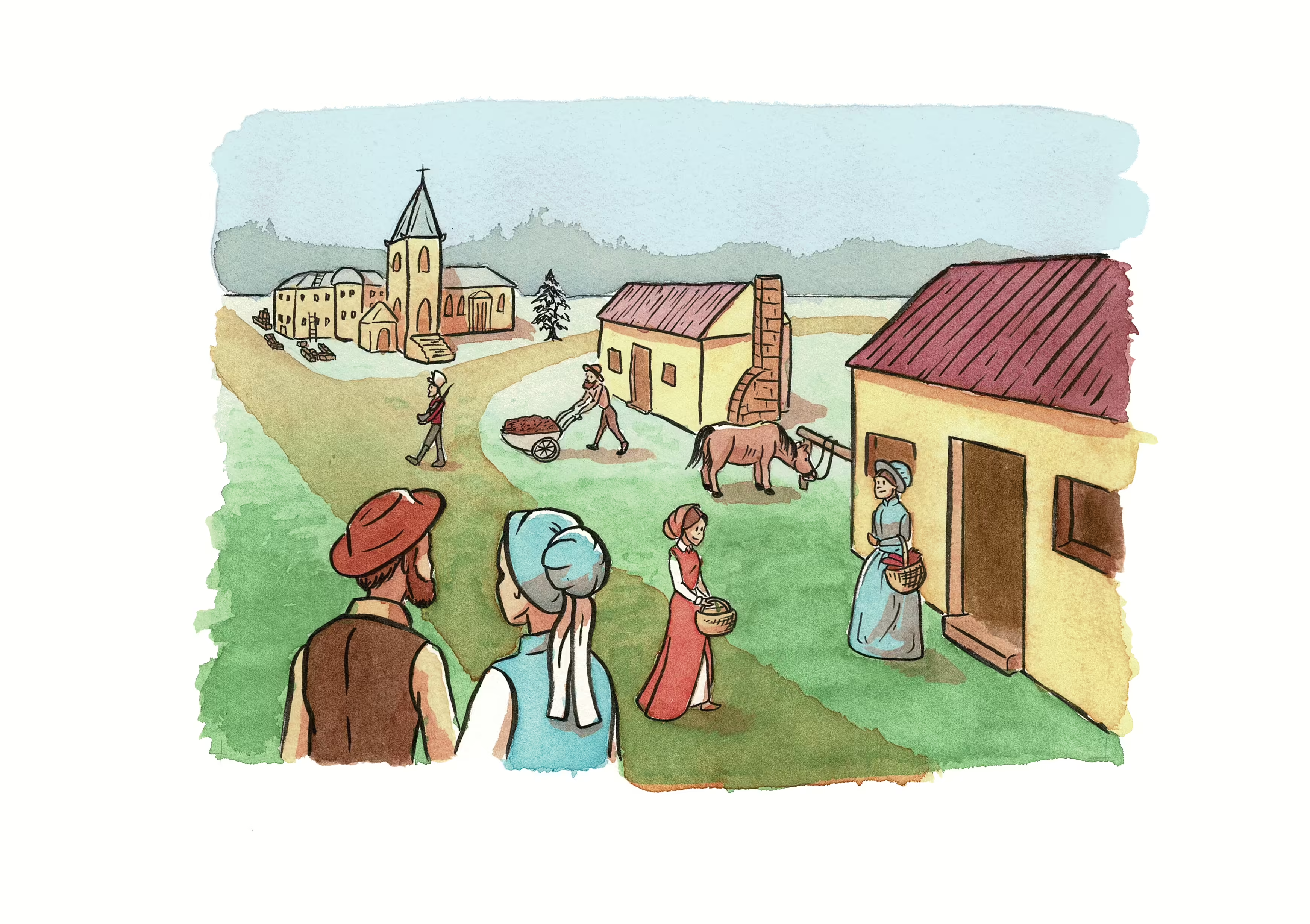
Australian History, Democracy and Law
Immersing students in real historical events such as Eureka Stockade and the First Civil Case helps develop an understanding of our democratic heritage under the rule of law.
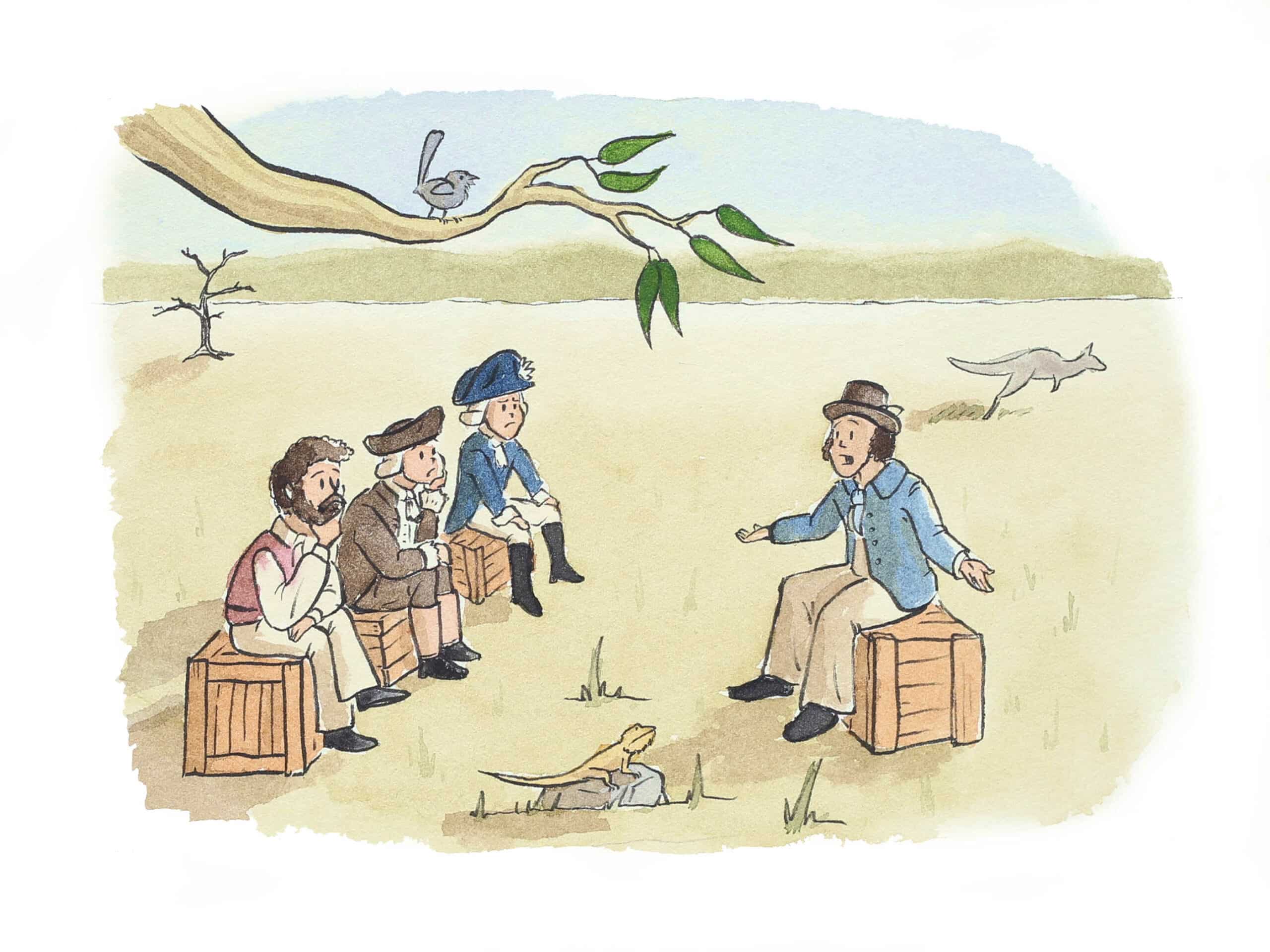
Civics Education Program
The informed competition is designed to build students’ understanding, skills, and confidence to effectively protect our democratic values and freedoms
australian history for civics
Topic Areas for Education Explainers
Indigenous and the Law
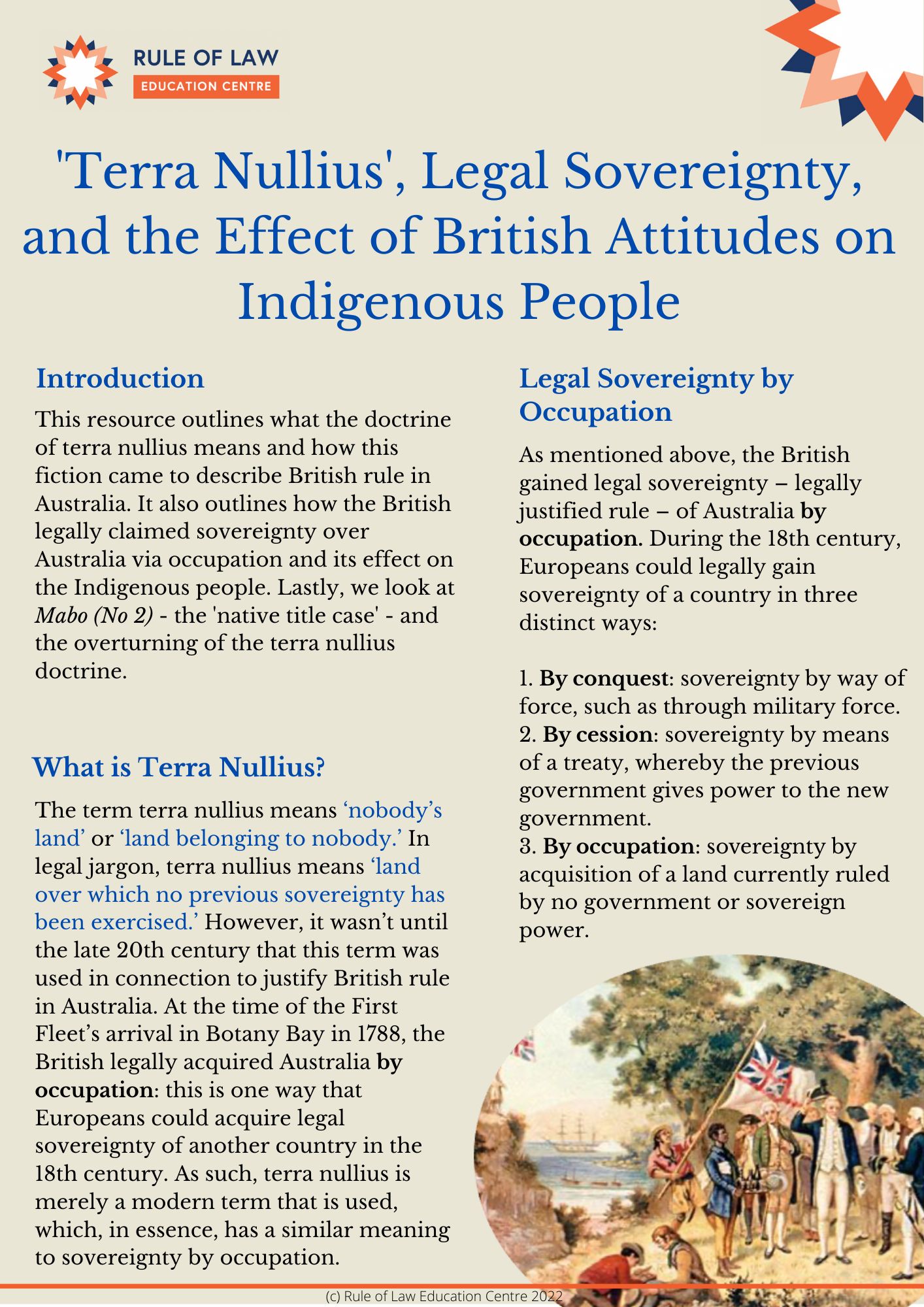
Terra Nullius and European settlement
In 1788, the British claimed sovereignty over Australia by occupation. With no one person ‘owning land’, Indigenous agricultural practices and viewing the land as “thinly inhabited and of indigenous lore,” the British considered the land as unclaimed. Although the term wasn’t used at the time, we now call this concept terra nullius (land belonging to nobody). This justified European occupation without a treaty with the Indigenous peoples. In 1992, the High Court of Australia overturned the idea that Australia was uninhabited in a landmark decision known as Mabo.
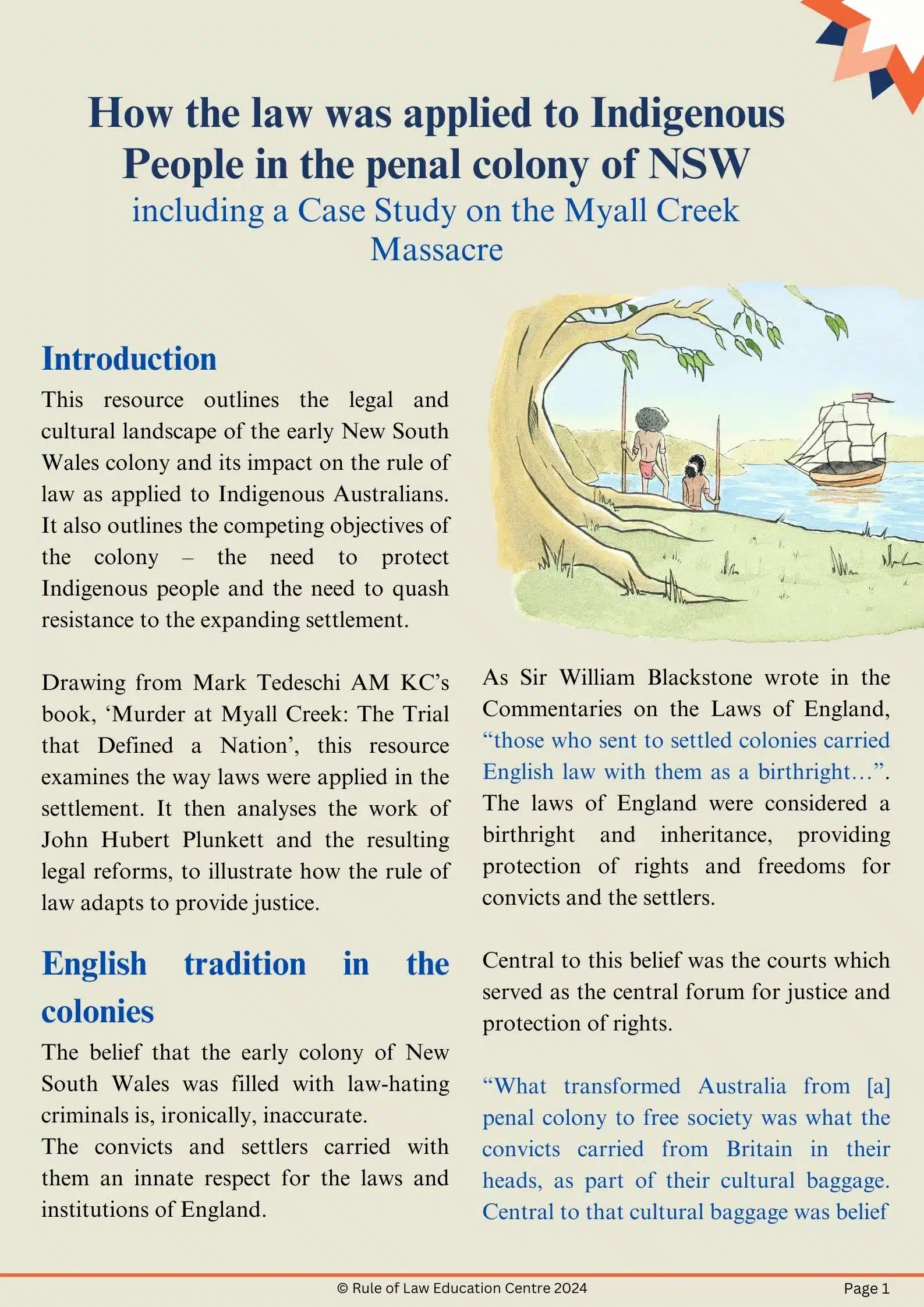
Myall Creek: How the law was applied to Indigenous People
Even though the court in R v Murrell (1836) confirmed the legal status of Indigenous people, in practice, they often remained outside the law’s protection because they couldn’t gain any benefit or protection from it.
The Myall Creek Massacre marked a turning point in Indigenous rights. Reforms followed the trial, driven by the advocacy of John Plunkett.
Establishment of the Penal Colony
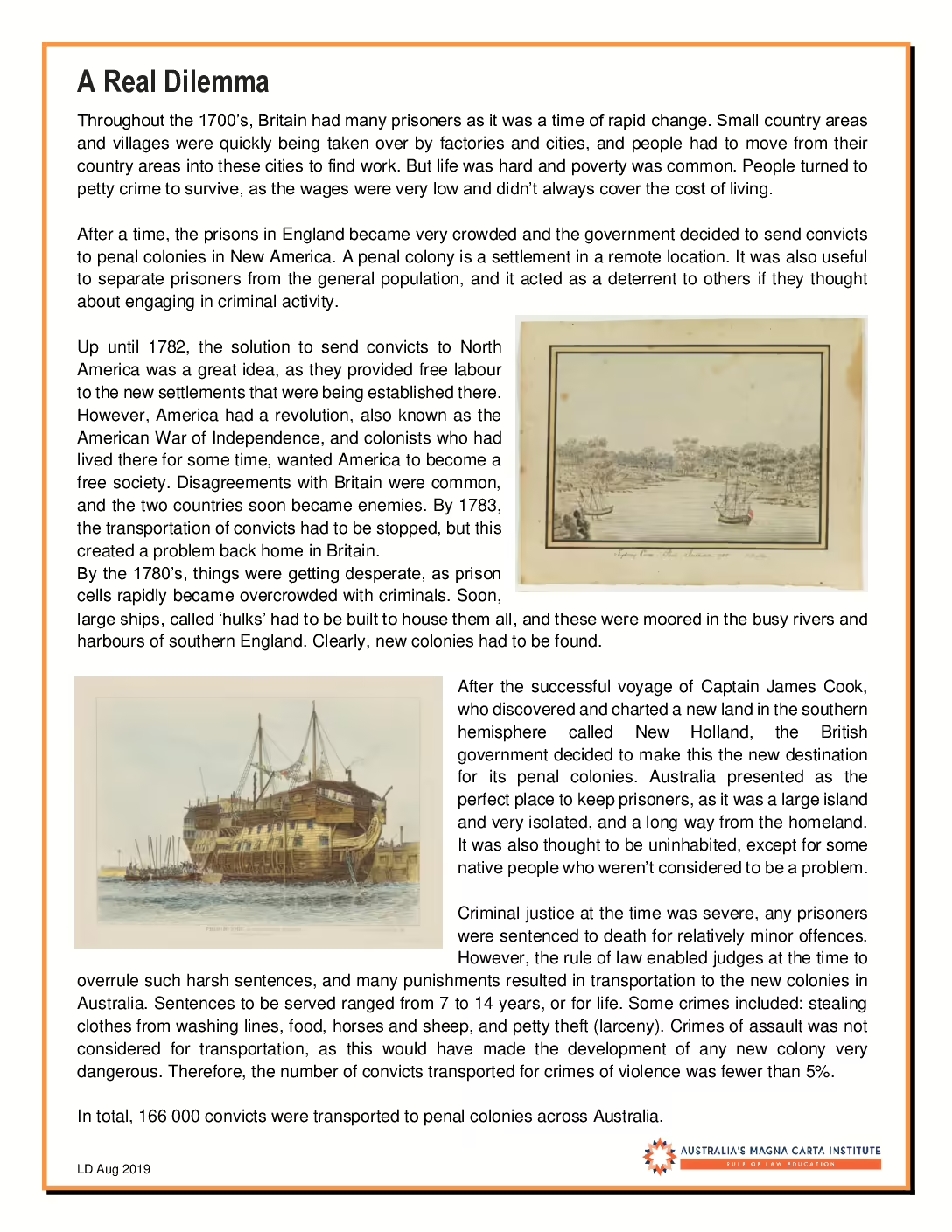
The need for a new penal colony: Lord Sydney
In eighteenth-century England, theft was punishable by death. However, the 1717 Transportation Act allowed for a reprieve for those convicted of grand or petit larceny or any felonious stealing, offering transportation to American colonies for seven years as an alternative punishment.
After the American War of Independence, Americans refused to accept more convict transports from England. With a growing prison population, the British Government needed a new location for those sentenced to transportation. After much debate, they decided to establish a penal settlement in Australia. Lord Sydney played a key role in planning the new colony.
Henry and Susannah Kable: First Civil Case and Equality before the Law
Click here to learn more and to view our education resources.
The First Civil Case in Australia: Henry and Susanna Kable
In 1783, 19-year-old Henry Kable (or Cable) and his father broke into a house in England and stole many household goods. Both were sentenced to death, but while Henry’s father was hanged, Henry’s sentence was reduced to transportation to America for seven years due to his young age. In 1784, 20-year-old Susannah Holmes stole linen, clothing, and kitchen goods from her employer. She was also sentenced to death, but her sentence was commuted to transportation to America for fourteen years. Susannah and Henry Kable were among the convicts who came to Australia on the First Fleet.
They became parties to the first civil case in New South Wales. Convicts, who had no rights when they left England, were able to marry and receive legal protection in the new colony. They were treated equally before the law and successfully sued the powerful ship’s Master, Duncan Sinclair, for their lost parcel of possessions. The Kable’s Case demonstrates how the rule of law adapted to the new colony, providing equality before the law.
The First Five Governors
Governor Arthur Phillip
Arthur Phillip was the founding Governor of New South Wales who endeavored to provide fairness and justice in the fledgling penal colony.
Governor John Hunter
In December 1792, Captain John Hunter was appointed second Governor of New South Wales on 11 September 1795 – 27 September 1800.
Governor Philip Gidley King
On 28 September 1800, Philip Gidley King was appointed the third Governor of New South Wales.
Governor William Bligh
Captain William Bligh was appointed the fourth Governor of New South Wales, on 13 August 1806 – 26 January 1808.
Establishment of NSW Supreme Court: Independent Judiciary and Free Press
Click here to learn more and to view our education resources.
The establishment of the NSW Supreme Court
Following the Bigge Reports in 1822 and 1823, the British Government recognized the need for additional checks on the Governor’s power and better administration of justice in the colony of New South Wales. The New South Wales Act 1823 (UK) established key institutions such as the Legislative Assembly, Executive Council, and the Supreme Court with an independent judiciary, which began to limit Governor Darling’s authority.
Francis Forbes, the first Chief Justice, was dedicated to upholding the law and protecting freedoms. He often clashed with Governor Darling, particularly over press freedom, opposing the governor’s attempts to impose restrictive press licensing laws and maintaining the separation of powers.
Eureka Rebellion and the development of democracy
Click here to learn more and to view our education resources.
The Eureka Rebellion
The Eureka Rebellion, also known as the Eureka Stockade, took place in Ballarat in 1854 during the Victorian gold rush. This violent clash between Victorian miners and the colony’s military marked a pivotal moment in the fight for true representative democracy in Australia, as the people demanded a “fair go” and the right to be included.
Through their sacrifice, the miners reinforced key values that are now deeply embedded in Australian society, such as freedom of assembly and political participation, freedom of speech, expression, and religious belief, and the right to vote and be elected.
Click here to see our resource on how the Eureka Rebellion impacted democracy in Australia
Australia’s path to Federation
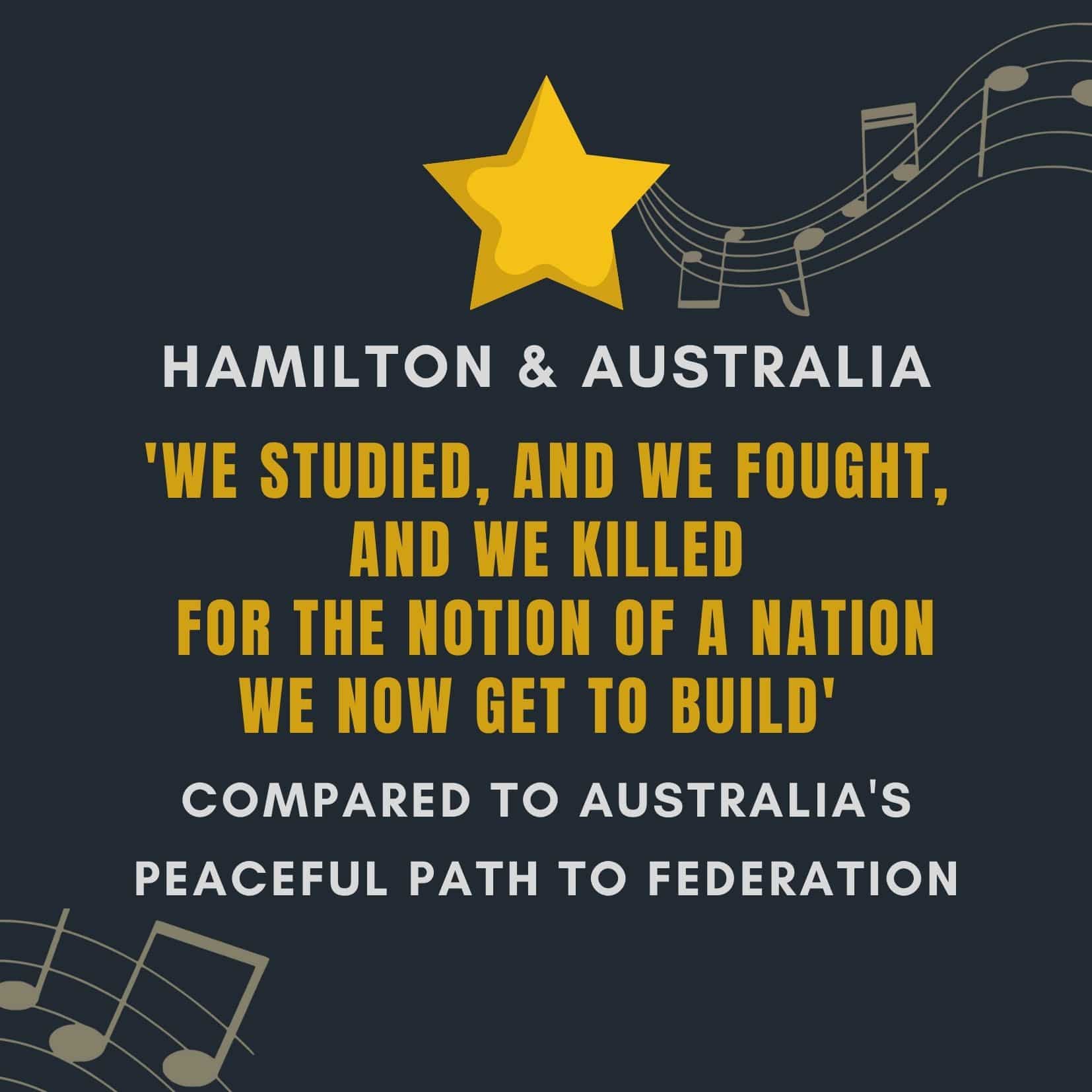
Click here to learn more and to view our education resources.
Different Paths to Federation: Australia and USA
In contrast to the American experience, where they “fought” and “killed” “for the notion of a nation we now get to build” (quotes from the musical Hamilton), Australia’s path to federation was marked by peaceful referendums in each colony, where citizens voted to unite as one nation. Australia had its own Alexander Hamilton in Henry Parkes. Both men, as immigrants to their adopted countries, worked tirelessly to achieve democratic milestones and establish a national doctrine that millions of citizens live by today. They are both unsung heroes, and it is fitting that Parkes and Hamilton are commemorated on national currency.
These resources use songs from the musical Hamilton as a prompt to compare the different paths that Australia and America took on their journey to federation.
Incorporating Civics into History teaching
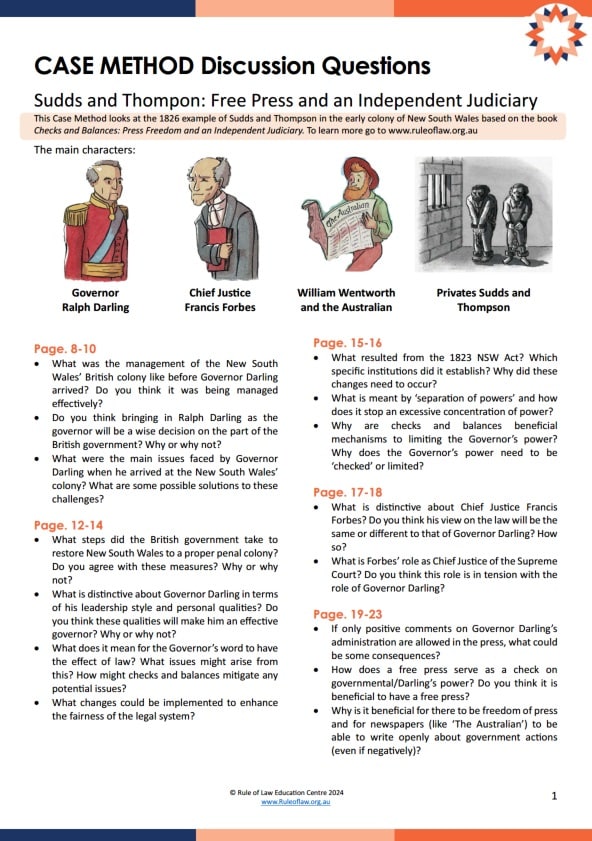
Using the Case Method to teach History
This resource provides a step-by-step guide to the Case Method. This teaching approach utilises decision-forcing cases to immerse students in real historical dilemmas from the past. The approach fosters critical thinking and facilitates student engagement in civil debate. Resources for First Civil Case and the Establishment of the NSW Supreme Court.
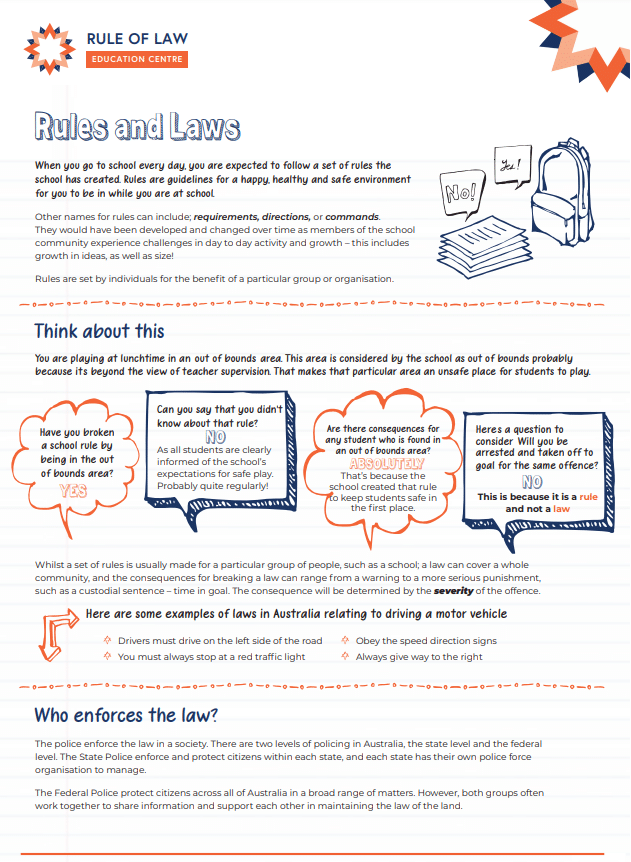
Civics and Citizenship
In Australia, Civics relates to civic knowledge of our system of governance, our democracy and the rule of law. It looks at the history, structures and process to provide students with relevant knowledge and understanding. Citizenship looks at skills, attitudes, beliefs and values that support active citizens and the capacity to act as informed and active citizens. Australian society has three main beliefs that form the core of our national identity, each one embedded into the process of how Australia is governed: Democracy, Laws, and Human Rights.
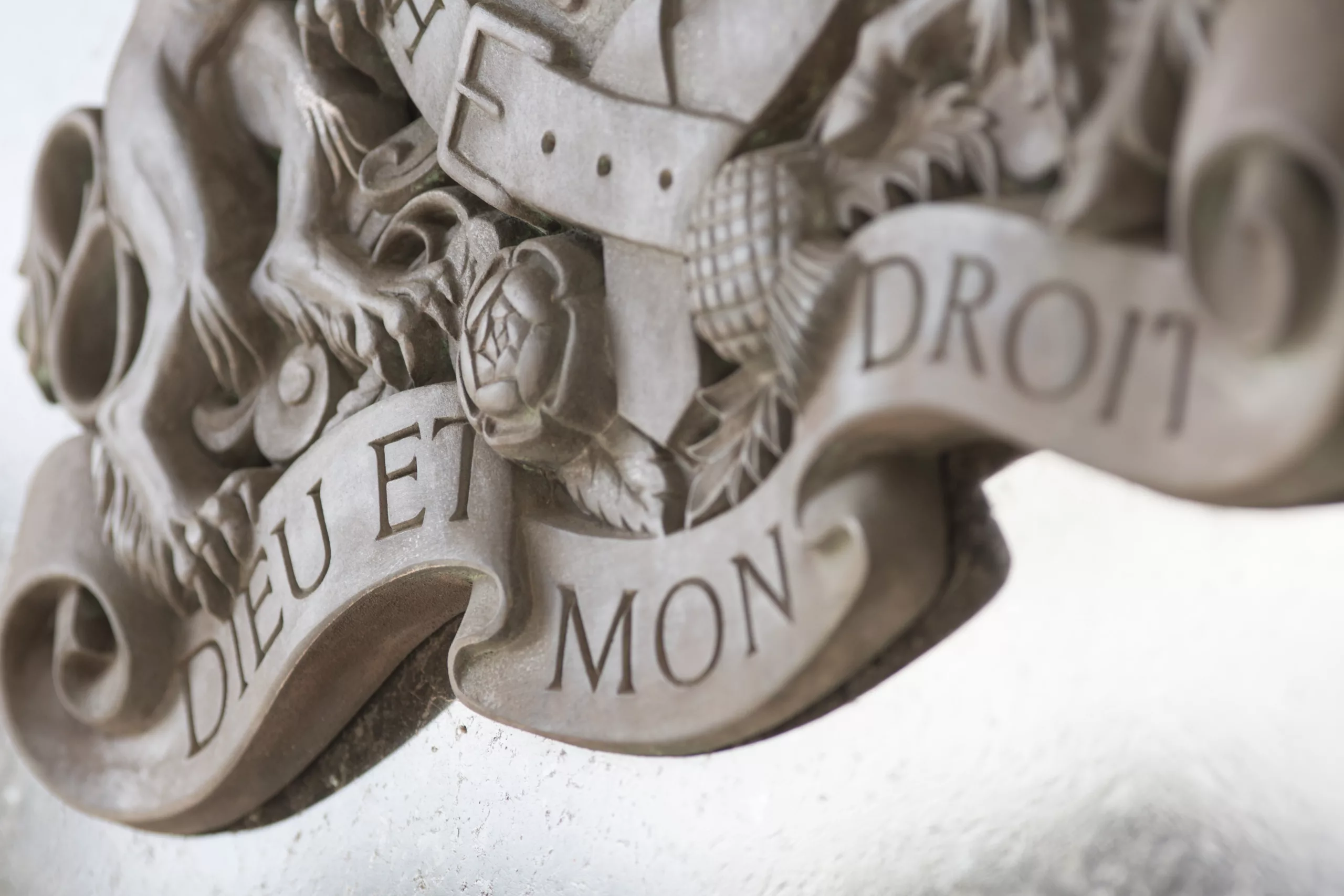
Court Visits – Downing Centre Update
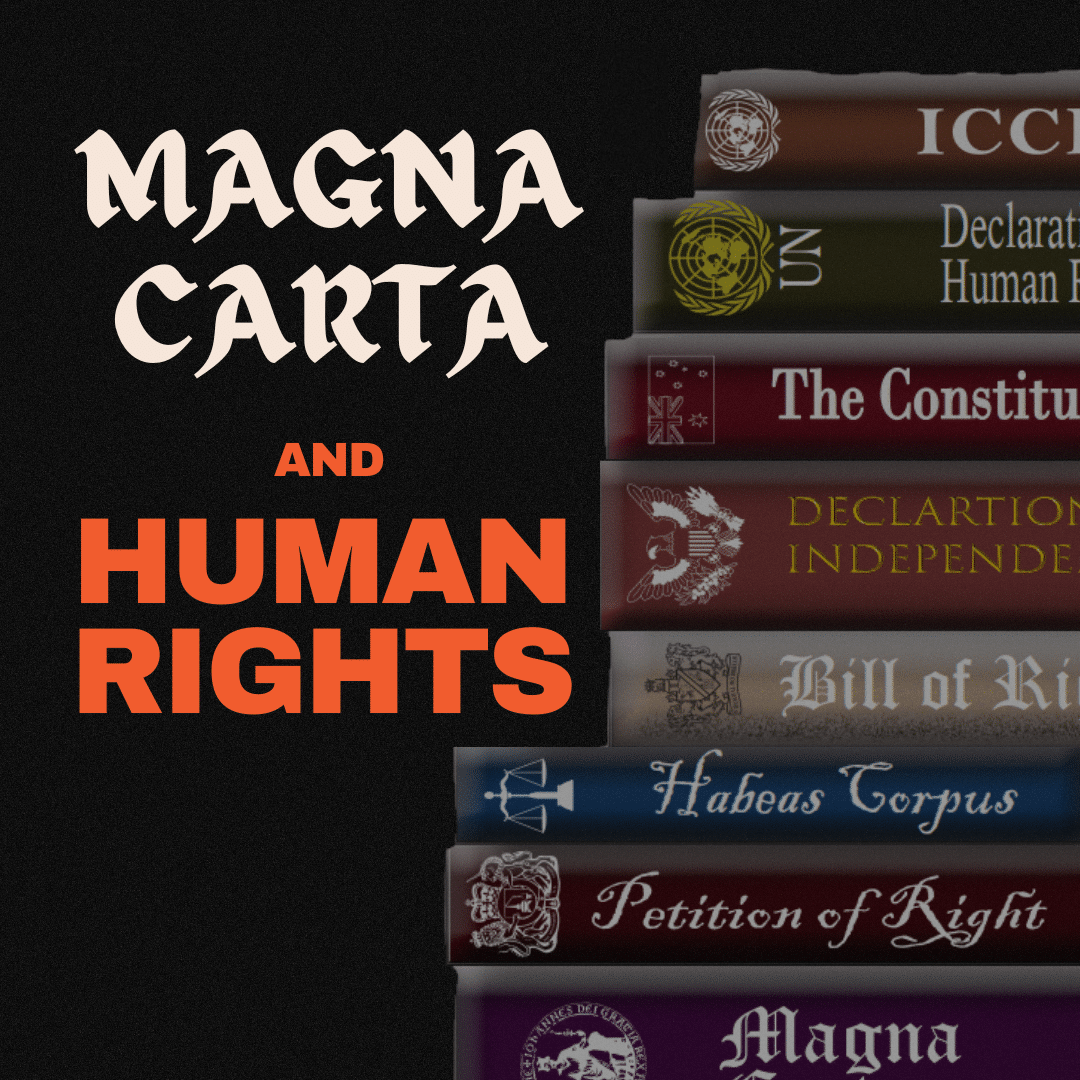
Magna Carta and Human Rights
The true power of the Magna Carta lies in its impact on human rights documents, and the creation of the rule of law and a respect for individual’s rights by those in power. The Magna Carta not only influenced English documents such as the Bill of Rights and the Habeas Corpus Act but the United States Declaration of Independence, the United Nations Human Rights documents including the ICCPR and the Australian Constitution.
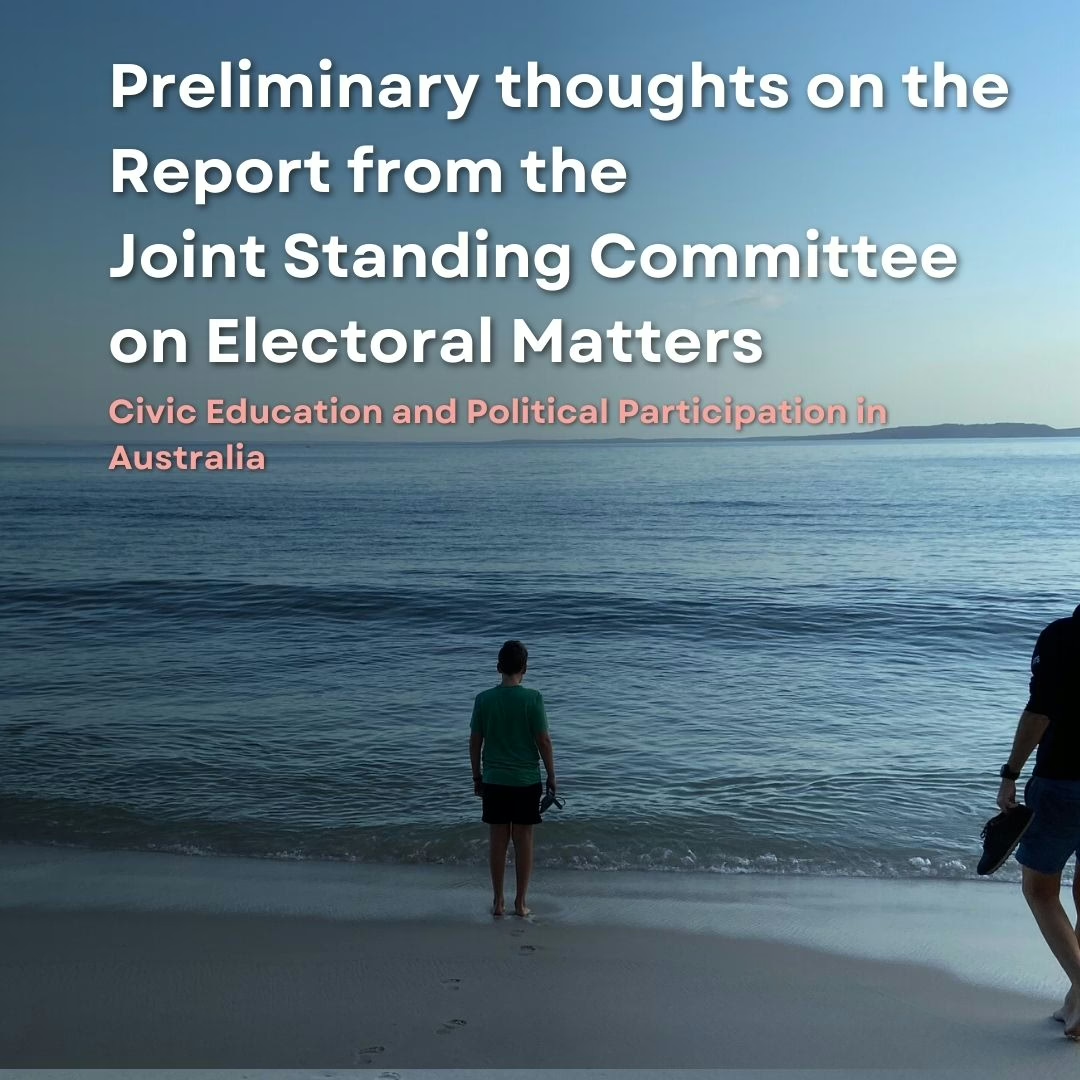
Standing Committee on Electoral Matters Report
The Parliament of Australia in their Joint Standing Committee on Electoral Matters released their report on 6th February 2025 titled ‘From Classroom to Community; Civics Education and Political participation in Australia.
The Rule of Law Education Centre made a Submission to the Committee as well as speaking to the Joint Standing Committee during their Public Hearings.
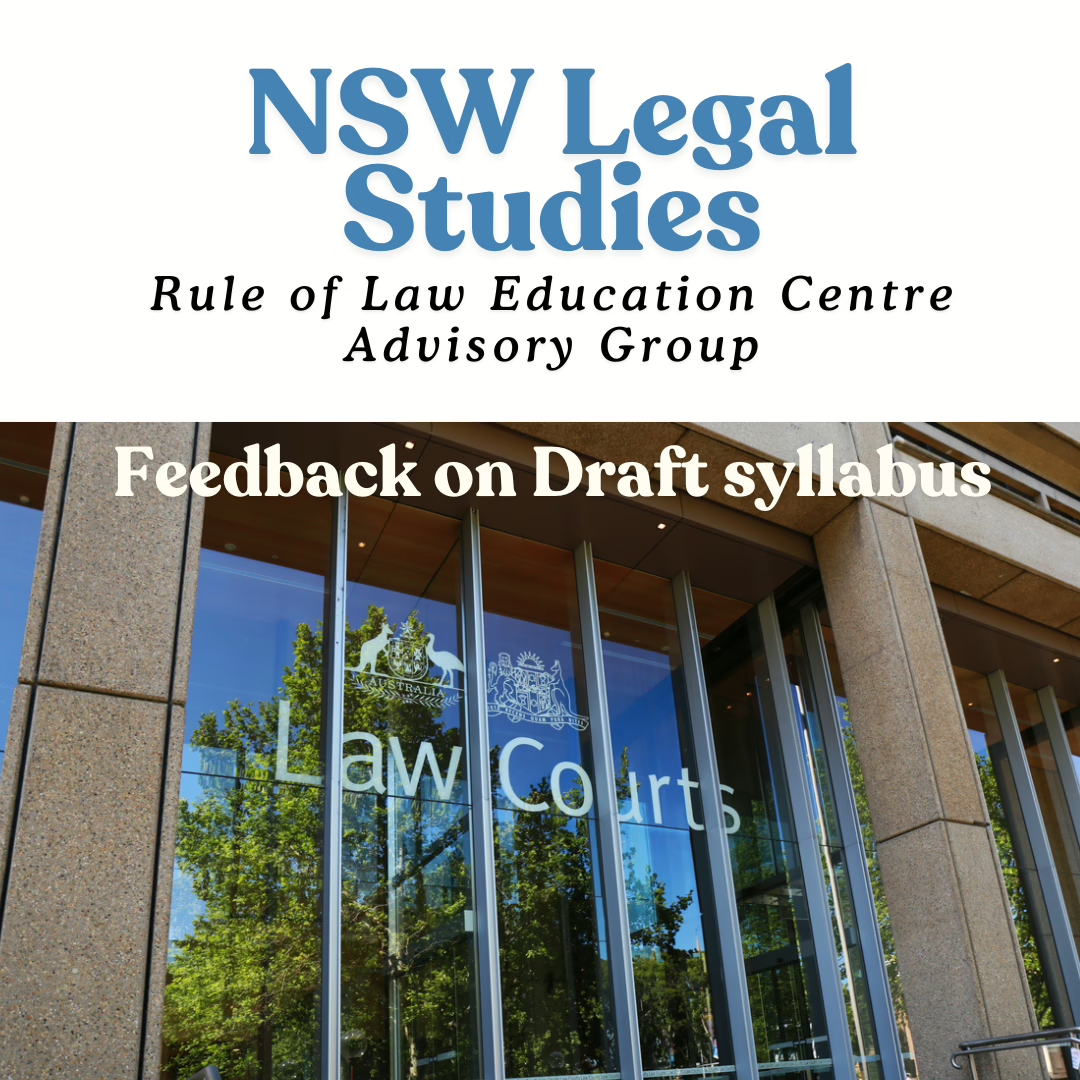
NSW Legal Studies Syllabus Reform 2024
The Advisory Group was established to comment on the NSW Legal Studies Draft Syllabus (‘the Draft Syllabus’) released on 28 October 2024 from a rule of law perspective. From this perspective, the Advisory Group has considered whether the syllabus provides sufficient knowledge and opportunities for students to understand and engage with the Australian legal system and the principles of the rule of law that underpin it.
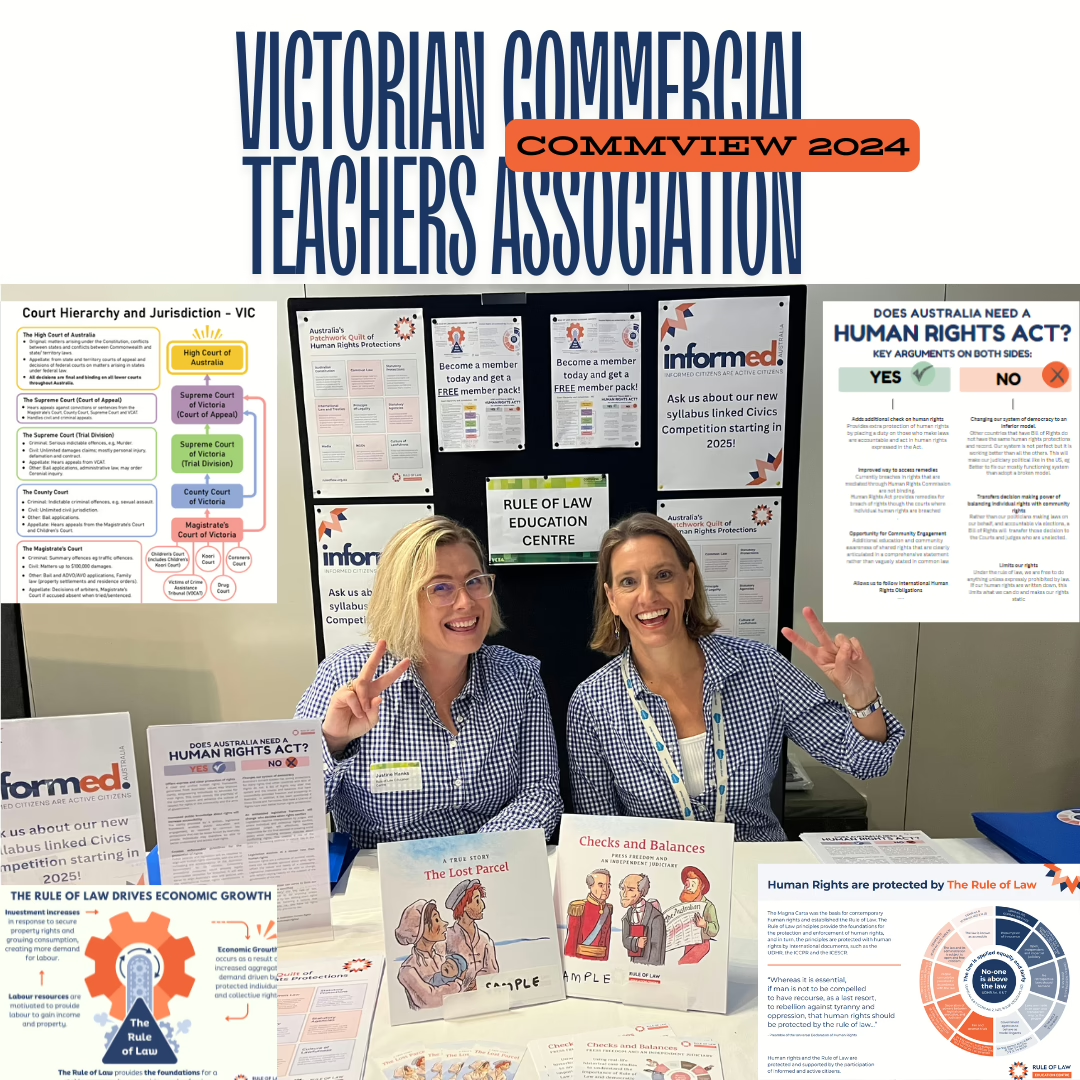
VCTA Comview 2024
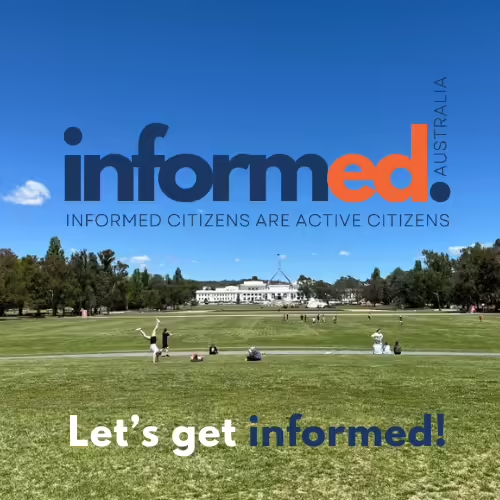
Expressions of interest and support for informed
The Rule of Law Education Centre’s informed project is unique. It is an opportunity for teachers and students to develop understanding, skills, and confidence to protect our democratic values and freedoms effectively. It gives students a framework to debate and wrestle with current issues to safeguard our freedoms and hold those in power to account.
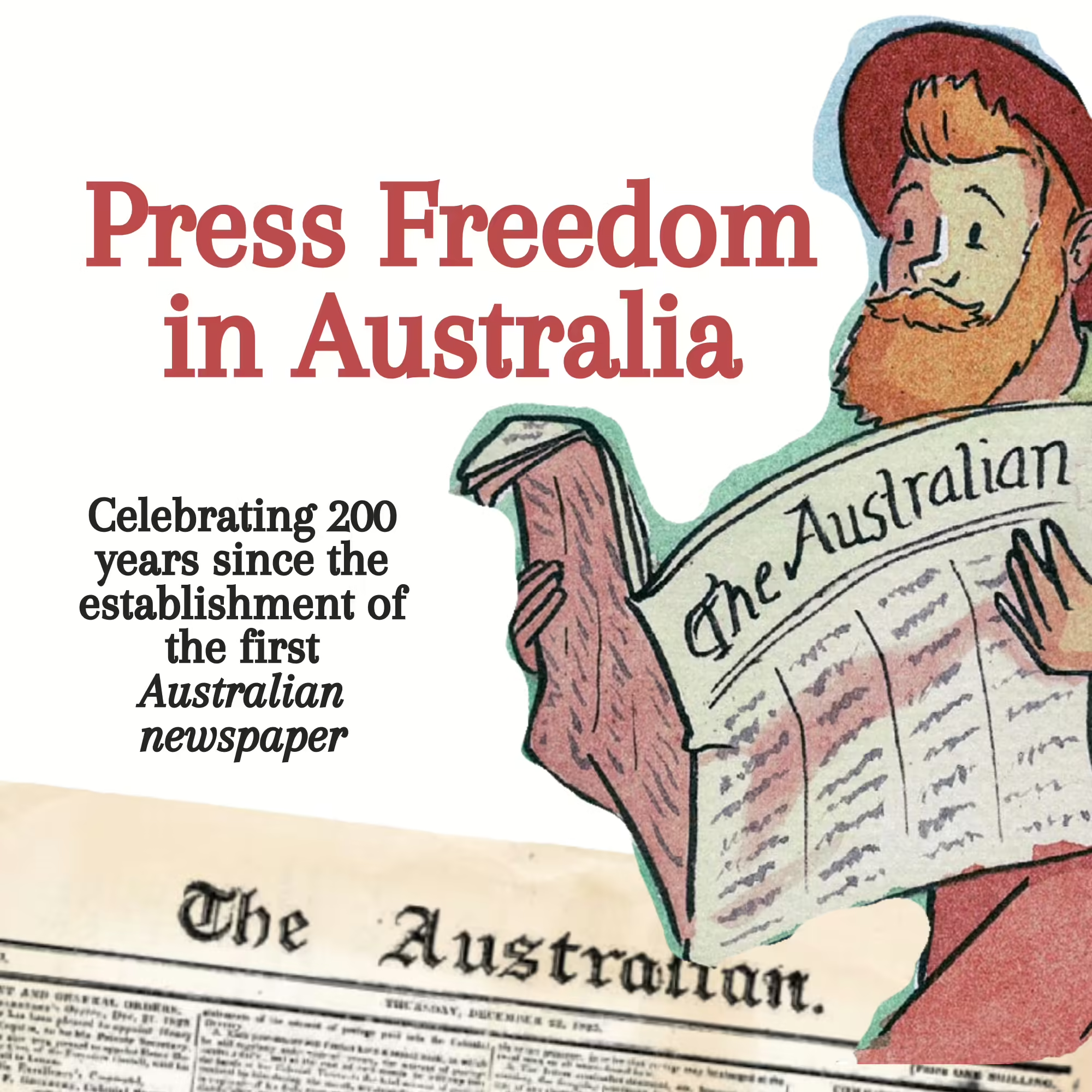
The Australian Newspaper: Wentworth and Wardell Anniversary
The original Australian Newspaper was started in the penal colony of NSW on 14 October 1824 by William Wentworth and Robert Wardell. Despite the growing success of the colony, Governor Darling sought to introduce a press licence to tighten control and curb potential misinformation- especially if it was about him! The licensing scheme would have allowed Darling to regulate who could publish newspapers, and ultimately, the information that could be circulated throughout the colony.
Page 1 of 54

